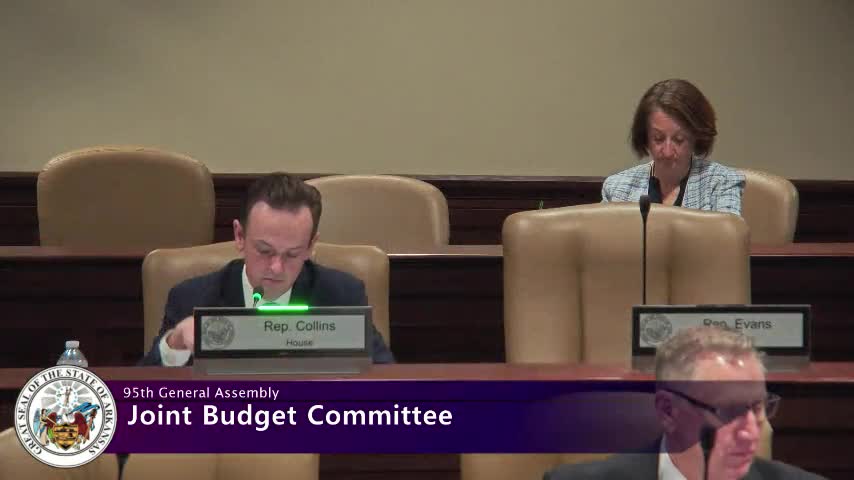Senate Bill 362 on youth organization grants fails after debate over targeting and DEI language
Get AI-powered insights, summaries, and transcripts
Subscribe
Summary
Senate Bill 362, which would have created state grants for youth organizations with statutory conditions drawn from the LEARNS Act, failed in the Joint Budget Committee after members debated whether its language improperly targeted the Boys & Girls Club and added diversity-equity-inclusion conditions.
The Joint Budget Committee on 2025-04-02 voted down Senate Bill 362, a spending bill that would have created youth-organization grant awards with eligibility language drawn from the LEARNS Act.
The bill’s sponsor, Senator Hammer, told the committee the measure “establish[es] parameters” for grant recipients that mirror existing law and Supreme Court precedent and said the Department of Education would oversee compliance. He also described a matching component that gives greater weight to new programs and a waiver pathway using memoranda of understanding for national affiliates.
Why it mattered: the bill would have created a new appropriations conduit for youth programs and included eligibility requirements opponents said singled out specific providers. That raised concerns about whether the language narrowed who could receive state funds and whether the Department of Education would be the gatekeeper for enforcing eligibility.
Committee discussion focused on whether SB 362’s language effectively targeted one national organization and on administrative requirements for local programs. One committee member argued the bill “targets” the Boys & Girls Club and said they would vote no. Senator Hammer replied that characterizing the measure as a targeting effort was “a misrepresentation,” saying the text borrows from the LEARNS Act and lets local entities access funds if they demonstrate compliance. Hammer also outlined a matching structure that gives larger matches to newer programs.
Representative Collins asked for a roll call by chamber. Representative Shepherd asked whether a memorandum of understanding with a national organization would be required; Hammer said it would not be required if the local entity could produce evidence that it was complying with the law, but that an MOU could serve as a protective measure.
After a chamber-by-chamber division vote was taken for the House portion of the roll call, the committee chair announced the bill failed.
Ending: The committee did not advance SB 362; proponents and opponents were left with outstanding questions about administrative implementation and whether the bill’s eligibility language unduly limited potential grant recipients. The committee recorded the failure and moved on to other appropriations items.
